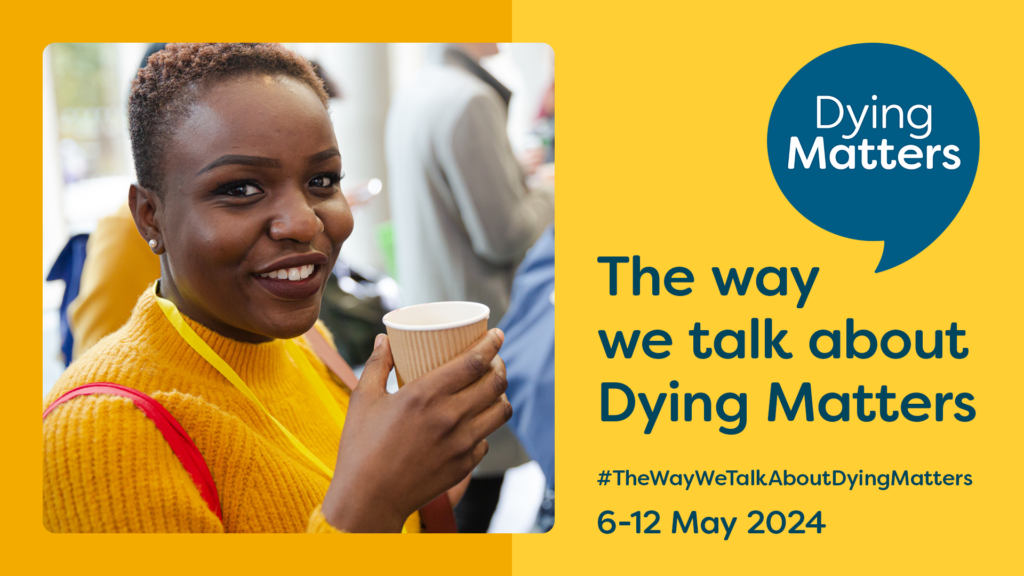
The Power of Conversation: Transforming How We Approach Death
It may seem like a distant dream, but having open conversations about death is a vision worth striving for. As it’s Dying Matters Awareness Week, let’s consider how we can transform the way we approach conversations about death.
Start by reflecting on your own experiences with talking about death. Have you ever felt uncomfortable or unsure of what to say? How do you think these conversations could be improved in the future?
Here are some practical tips to help you navigate these discussions:
- Normalise the Topic: Death is a natural part of life, yet we often treat it as taboo. By normalising the topic of death, we can reduce fear and stigma surrounding end-of-life conversations.
- Share Personal Stories: Sharing personal stories can help make the conversation feel more relatable and less daunting. Whether it’s a fond memory of a loved one or a reflection on your own mortality, storytelling can foster empathy and connection.
- Discuss Practical Matters: In addition to emotional support, it’s important to discuss practical matters such as advance care planning and end-of-life wishes. Encourage loved ones to express their preferences for medical treatment and funeral arrangements.
- Practice Active Listening: Listening is a crucial part of effective communication. Practice active listening by giving your full attention, asking clarifying questions, and validating others’ feelings.
At St Michael’s Hospice, we believe in the power of conversation to transform the way we approach death. Through open and honest dialogue, we can create a more supportive and compassionate society where everyone feels empowered to talk about end-of-life issues.
So, as we embark on Dying Matters Awareness Week, let’s commit to having meaningful conversations about death. Together, we can build a future where talking about death is not only accepted but embraced as an essential part of living well until the very end.
Take the Talking Matters quiz!
Take this short quiz to find out how 1,000 recently bereaved people in the UK feel about language and communication at the end of life, based on their experiences – and be prepared to be surprised.